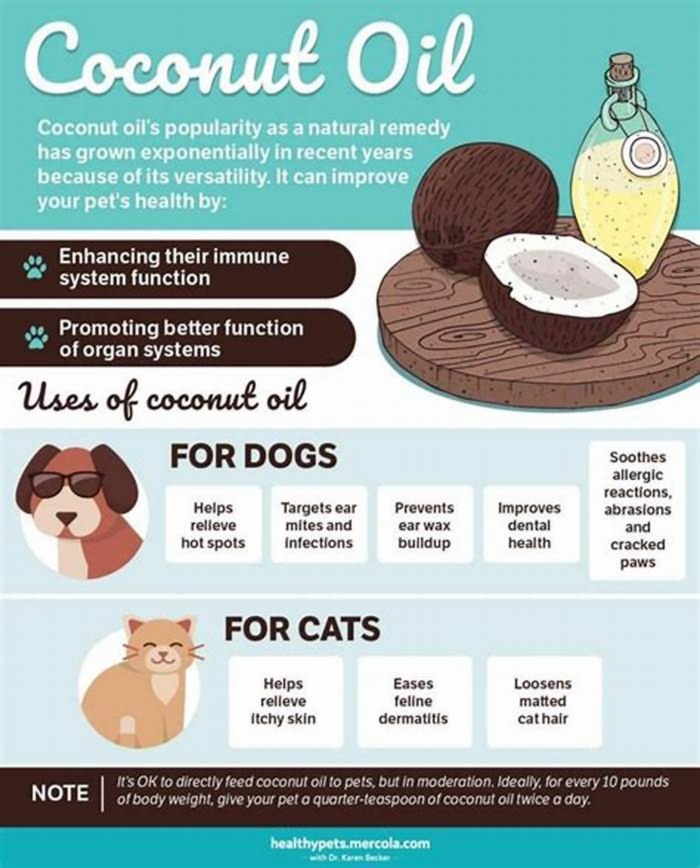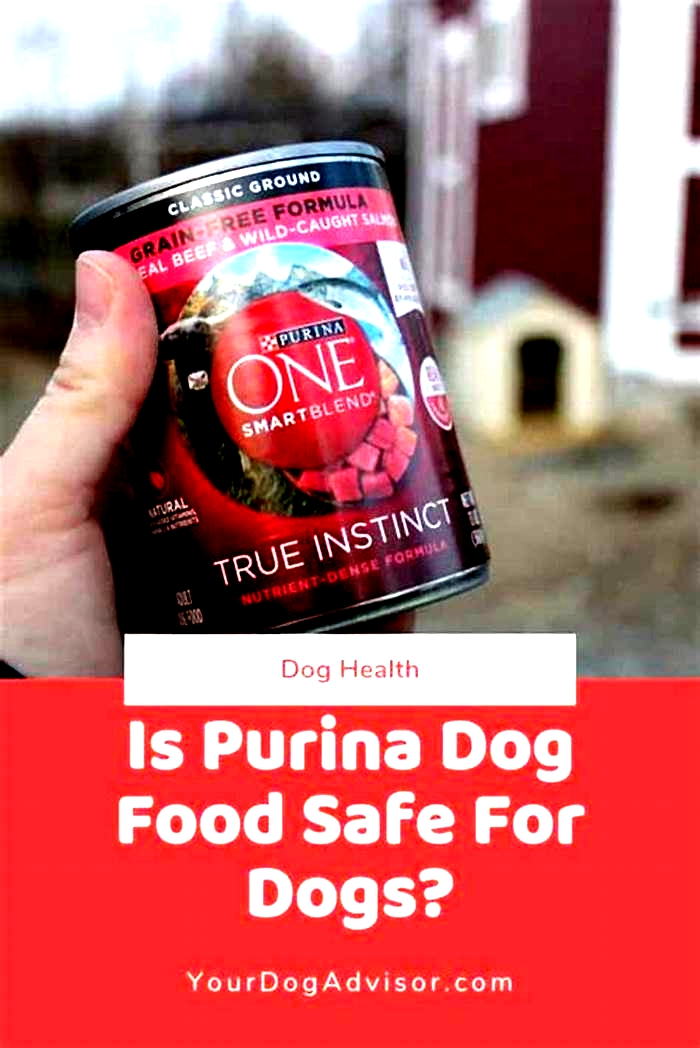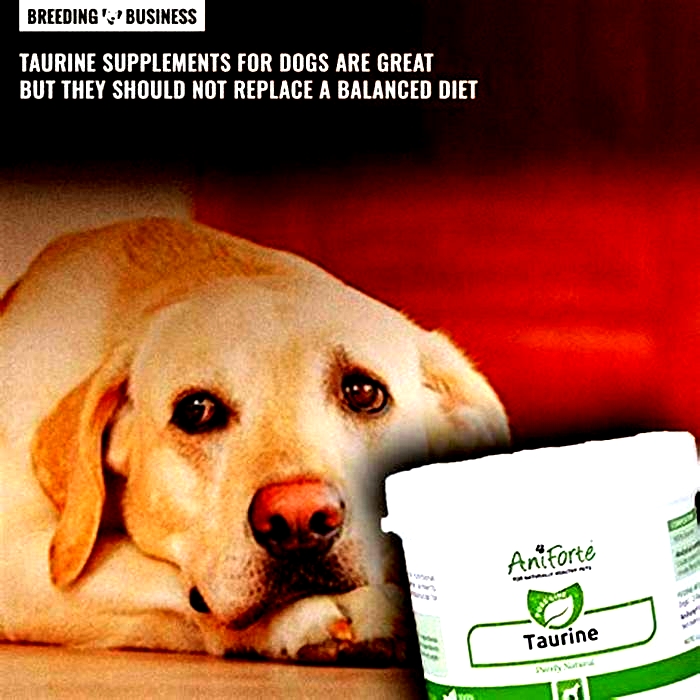Is flaxseed good for dogs
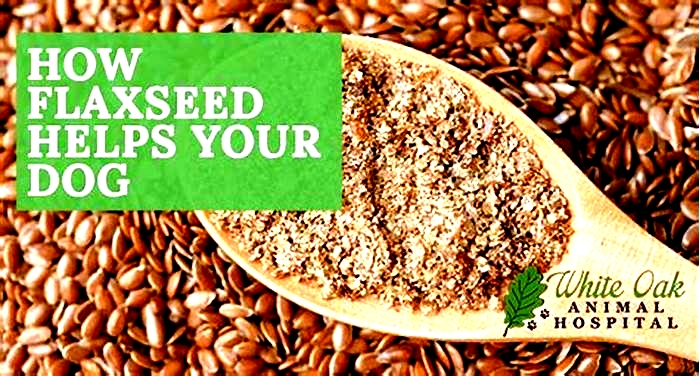
Health Benefits of Flaxseed for Dogs and How To Use Safely
Is Flaxseed Good for Dogs?
While, its critical that you supplement your dogs daily diet with good flaxseed oil for dogs, its equally important to determine which type of oil is best for your dog.
When deciding, an important thing to remember is that flaxseed is made up of mostly ALA (alpha-linolenic acid) which is an omega 3 fatty acid. While that might sound good, its not so good for your dog because his body has to work twice as hard to convert ALA to EPA and DHA in order for him to take advantage of its benefits.
Unfortunately, this is not easy for dogs and flax isnt the best option of providing your dog with the necessary oils he or she needs. Dogs digest animal protein much easier than plant-based proteins and flaxseed is, of course, a plant protein. However, well share with you the best ways to use it.
What Type of Flaxseed Should I Use for My Dog?
Are Flax Seeds Good for Dogs?
We recommend either using flaxseed meal such as Bobs Red Mill Ground Flaxseed or a good oil like Earth Source which contains all three major fatty acids 3,6, & 9. Remember to refrigerate it and use it within two months. *Tip: put a label on the outside of the bottle with the date that you opened it.
Be sure to only use ground flax aka linseed so that your dogs body can absorb it. The fiber contained in the outer husk can absorb large amounts of water, which allows it to swell and become a soothing gel once your dog ingests it. When using an oil, you also want to make sure that it is organic, cold pressed and unrefined.
Both of these brands are good. Keep in mind that the oil includes all three fatty acids, but the ground flax does not, although it does include a very high dose of omega 3s. Either option is good when feeding your dog flax.
Known Benefits
- Can help with skin & coat.
- Flaxseed Lignans are often recommended for the treatment of Cushings Disease to help restore thirst and urination regularity. Add 1-2 mg of Lignan for each pound of your dogs body weight. See our recommended brand here >Lignans for Cushings
- Linseed (flax) is also recommended for IBS patients. Flaxseed is known as an adaptogen helping dogs with both loose stool and constipation. It should be organic and again it MUST be ground and given slowly until you reach the maximum recommended dosage. All dogs are different, so use common sense and if your dog shows signs of the stool becoming soft, back down and adjust until you see the stool remain firm and formed. See recommended dosages below.
- The Budwig Diet is popular in the treatment of cancer and includes cottage cheese and flaxseed. A study showed that flaxseed slowed the growth of breast cancer and melanoma.
Flaxseed Dosage for Dogs
These are the general guidelines, but you can slightly increase or decrease based upon your dogs reaction. Keep in mind that it can take anywhere from 1-3 months to show any improvement.
Concerns When Using Flax for Your Dog
- As mentioned earlier, using too much flaxseed can cause your dog to have soft stool or diarrhea.
- Raw flax plant contains cyanogenic glycosides. The consumption of large amounts of flax can lead to cyanidepoisoning.For this reason, take special care when using flaxseed for dogs if your pet is on the small side or has ahistory of medical conditions that may interfere with the eradication of toxins. And if you are growing flax in your garden, make sure that your dog does not devour your entire crop or you could be in for a rude awakening.
- For the most part, symptoms are digestive in nature and include diarrhea.
More About Flaxseed for Dogs
For the interest of this article, the focus is mainly on flax seeds. These come in two assortments: brown and yellow.
They typically come with a considerable amount of nutritional properties and feature omega-3 fatty acids. They also produce flaxseed oil for dogs, sometimes known as linseed oil. This is one of the worlds most durable oils.
Flax oil is retrieved through the process of expeller processing, which efficiently squeezes the living daylights out of the flax seed to extract all the oil.
The flax seed sprouts themselves are edible, although eating too many without adequate liquid can lead to obstruction of the bowels. They have a somewhat spicy flavor and might not be the best option to feed dogs.
References: Herbs for Pets by M.L. Wulff-Tilford and G.L. Tilford and Natural Remedies for Dogs and Cats by CJ Puotinen,Ellies Whole Grains.
Is Flaxseed Good for Dogs? Benefits, Risks & Tips
Feeding your dog a well-balanced diet that is suitable for their unique needs is important for their overall health and well-being. So, as dog owners we want to incorporate the healthiest, most nutritious foods in our pets diets, so they are getting everything they need to thrive.
Flaxseeds are a very popular superfood in the human diet that has many benefits packed into a very small serving and the good news is, they can also be good for dogs for many reasons. Its important that any flaxseed offered to your dog is properly processed and is never raw or unprocessed.

What Is Flaxseed?

Flaxseeds are very tiny seeds that are derived from the flax plant. These seeds offer health benefits for humans and dogs alike. They are rich in various nutrients, omega-3 and omega-6 fatty acids, fiber, protein, and lignan, which are polyphenolic compounds noted for their antioxidant effects.
Because flaxseed is full of essential vitamins and minerals, it offers support for various bodily functions, making it a great addition to your dogs diet. A small amount goes a long way too, only a very little amount of flaxseed will provide these benefits.
The benefits of flaxseed are great for dogs of all ages and will help support them from puppyhood all the way into their senior years by aiding in growth and development in the beginning and helping them maintain optimal health as they age.
Vitamins and Minerals Found in Flaxseed:
- Magnesium Supports many bodily functions including bone health and cognitive function.
- Choline Part of healthy liver and brain function.
- Manganese Aids in nutrient absorption and antioxidant processes.
- Thiamine (vitamin B1) Supports and helps maintain a normal metabolism and nerve function.
- Phosphorus Often present in protein-rich foods and aids in bone and tissue maintenance.
- Copper Important for growth, development, and also a variety of bodily functions.

What Are the Different Types of Flaxseed?
Flaxseed is broken down into brown and golden varieties. They each have very similar nutritional content but there are some slight variances between the two with the most significant being the amount of Omega-3 fatty acid found in the flax oil.
Brown Flaxseed
Brown flaxseed is dark brown and produces a bold, nutty flavor. They are made up of 38% fat, 24.5% protein, and 28% carbohydrates.
Golden Flaxseed
Golden flaxseeds are golden to yellow and feature a lighter, buttery flavor that is a bit sweeter than brown flaxseed. They are made up of 37.5% fat, 23% protein, and 30% carbohydrates. Golden flaxseeds have more alpha-linolenic acid, linoleic acid, and polyunsaturated fatty acids but fewer monounsaturated fatty acids compared to brown flaxseeds.
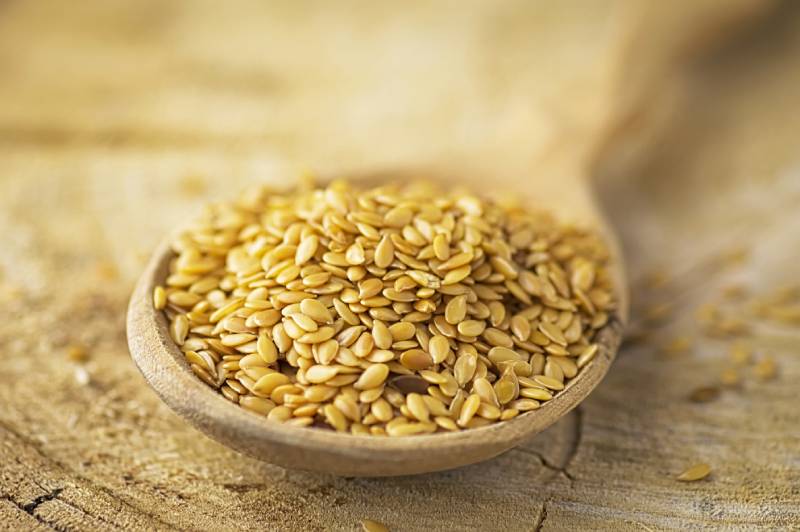
Whole Flaxseed
Flaxseeds can be purchased as whole seeds, and they are the most shelf-stable. Like with many seeds though, they are more difficult to digest when they are whole because they have an outer layer of cellulose, which is an indigestible fiber. This protective layer often allows the seeds to pass right through the digestive system undigested, meaning your body can absorb all the benefits.
Ground Flaxseed
The best way for your dog to reap all the benefits of flaxseed is by offering them ground flax. This is when the whole seeds are soaked, drained, and then ground into a powder. Ground flaxseed is much more digestible and the best way to get all the nutrients it has to offer. Once ground, it is recommended the seeds be refrigerated to prevent them from going rancid. Always follow the instructions on the specific package.

Flaxseed Oil
You can also offer flaxseed oil1, which is when the oils are extracted from the whole seed. Flax oil offers many of the benefits of ground flaxseed, but not all. It is very rich in omega fatty acids but during the extraction, it will lose fiber content and certain vitamins and minerals that are not fat soluble.

How to Feed Your Dog Flaxseed
There are a few ways you can incorporate flaxseed into your dogs diet and the way you do so is entirely up to you. Here are the most common ways dog owners choose to add this beneficial superfood:
Offer Food That Already Contains Flaxseed
There are plenty of commercial dog foods on the market that already include flaxseed in their formulas. Remember to check the ingredients list and read the entire label thoroughly when deciding on a specific dog food to make sure it meets your standards.
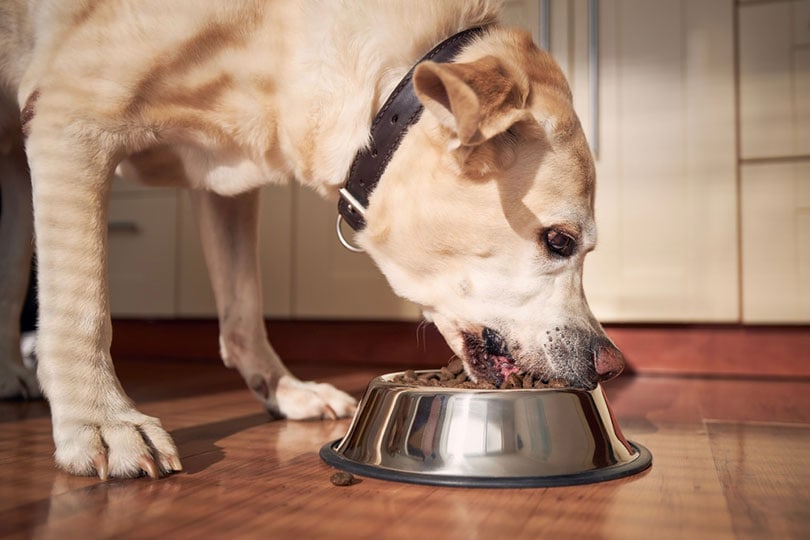
Add Flaxseed to Your Dogs Food
You can easily mix in flaxseed with your dogs food if it does not contain any in the formulation. It is recommended that you mix in ground flaxseed to get the entire scope of benefits that flax has to offer. Mixing in flaxseed oil is also an option if you are just looking to add those omega fatty acids. We dont recommend adding whole flaxseed only because it is more difficult to digest, and your dog may not be able to reap the benefits.
Bake Flaxseed in Your Dogs Treats
You can easily use flaxseed as an ingredient in your homemade treats. There are plenty of recipes available online that include some tasty ingredients that your dog will love.

Advantages of Flaxseed
Supports Healthy Digestion
We humans typically add flaxseed to our diets because of the digestive benefits. Since it is very high in fiber, it helps support healthy digestion. Flaxseed is made up of nearly 30% carbohydrates and 95% of those carbohydrates are fiber. This fiber can be very beneficial to our dogs digestive systems, too.
To get more specific, flaxseed contains approximately 20% soluble fiber and 80% insoluble fiber. Soluble fiber aids in the overall process of digestion and provides a feeling of being full. Insoluble fiber, on the other hand, adds bulk to the stool and allows for healthier bowel movements.
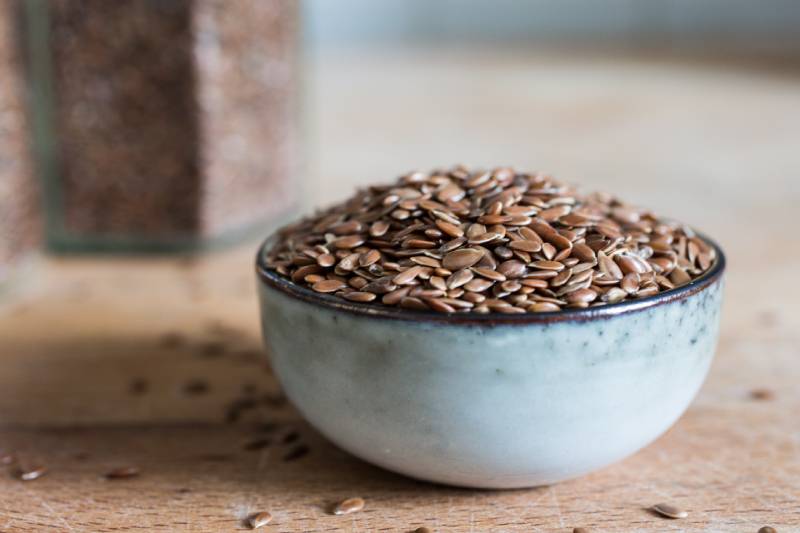
Supports a Healthy Skin and Coat
Flaxseed contains omega fatty acids and is incredibly rich in omega 6 fatty acid, linoleic acid. Linoleic acid helps reduce inflammation, provides moisture and protection to the skin, and aids with healing. It is great for dogs that have dry, flaky, or itchy skin. The omega-3 fatty acids in flaxseed also help enrich the coat by adding a healthy shine.
Aids Immunity
Flaxseed is full of essential vitamins, minerals, and antioxidants that provide full body support. The lignans found in these seeds have some incredible benefits by aiding in cell oxidation and helping the body fight off free radicals, which can lead to disease. They allow for healthier cell function, which ultimately aids your dogs immune system and long-term, full-body health.
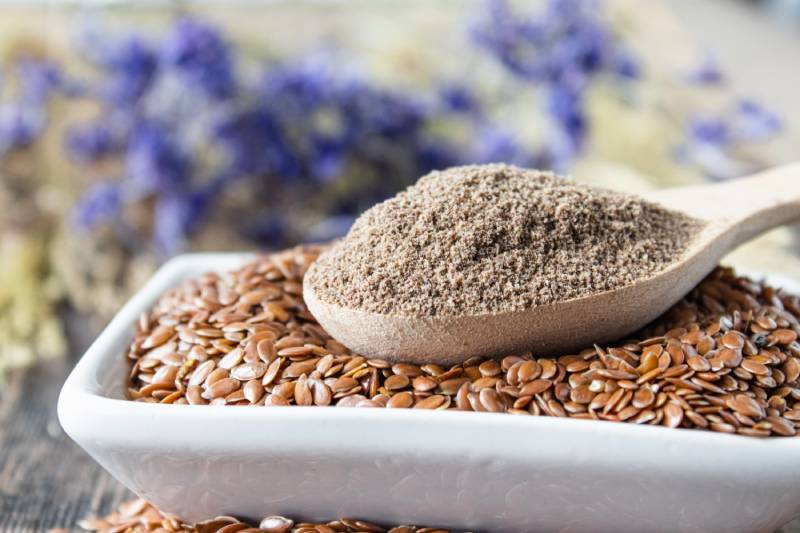
Hip and Joint Aid
Alpha-Linolenic Acid or ALA is the most abundant omega-3 fatty acid found in flaxseed. ALA has many inflammatory properties by itself, but it can also be converted to EPA and DHA, which are two other fatty acids with even better anti-inflammatory properties. EPA and DHA are the sought-after components in fish oil.
Not only can all the beneficial omega fatty acids and nutrients found in flaxseed aid in growth and development, but they can also be very beneficial to dogs that suffer from mobility issues related to age, size, or genetic conditions. Chronic joint pain can be debilitating, and flaxseed helps reduce inflammation, which can relieve pain and help your dog remain active.

Disadvantages of Flaxseed
If you incorporate flaxseed properly into your dogs diet with the recommended dosage amounts, it is very safe. However, too much of anything can be problematic. If you give too much flaxseed to your dog, it could potentially cause nausea, diarrhea, or vomiting. Flax poisoning is very rare but can occur. It is most often observed if dogs ingest raw, unprocessed flax or eat the flax plant itself.
Flax Poisoning Risk Factors:
- Ingestion of raw or unprocessed flax seed.
- Chewing open and eating a bag of flaxseed, capsules, or a bottle of oil.
- Ingestion of an improperly processed supplement.
- Ingestion of flax plants growing outdoors.
- Feeding your dog excessive amounts of flaxseed.
Signs of Flax Poisoning:
- Diarrhea
- Vomiting
- Shortness of breath
- Lethargy
- Weakness
- Difficulty walking
- Rapid heart rate
- Paralysis
While flax poisoning is incredibly rare, if your dog has ingested flaxseed and is experiencing any signs that are concerning to you, you should reach out to your veterinarian immediately for further guidance.

Medication Warning
Always talk to your veterinarian before you add any kind of supplementation to your dogs diet. It is especially important to be wary if your dog takes any anticoagulants, blood pressure medications, or insulin, as flaxseed could have potential interactions with these kinds of medications.

Frequently Asked Questions (FAQs)
Whats the Difference Between Processed and Unprocessed Flax?
Raw flax plants have cyanogenic glycosides, which may lead to cyanide poisoning if ingested in large quantities. How flaxseed is processed flaxseed (water soaking or wet autoclaving) significantly reduces the number of cyanogenic glucosides. Dogs should never be offered any unprocessed version of flaxseed or given access to the plant itself.
Can Flaxseed Give My Dog Diarrhea?
It is not uncommon for dogs to experience loose stool when flaxseed is incorporated into their diet. Flaxseed is very high in fiber so not only are loose stools something that can happen, but you may notice your dog having more bowel movements throughout the day. Too much ground flaxseed could also cause significant amounts of bulk in the intestines, which could even lead to constipation in some cases.
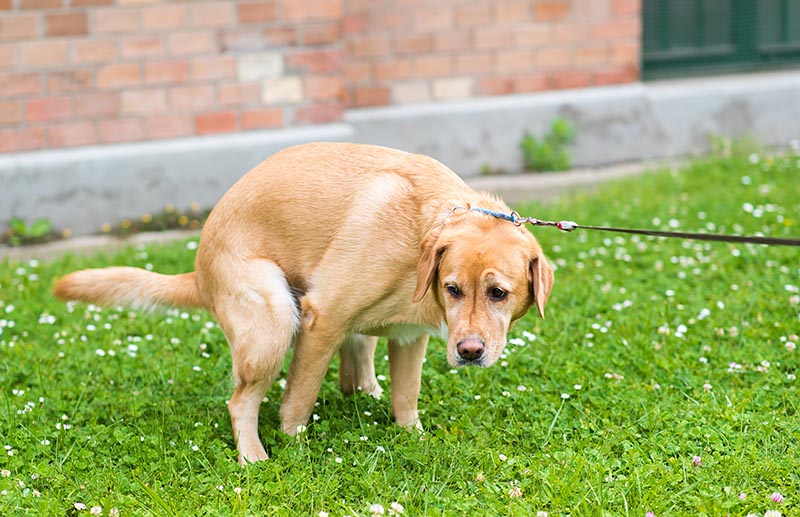
Whats the Best Way to Store Flaxseed?
Its best to store flaxseed in an air-tight container. It may sometimes need to be stored in the fridge but that isnt always the case as it can sometimes be stored in a cool, dark pantry. We recommend reading the storage suggestions on your specific brand for the best storage advice.
Are There Any Risk Factors?
Flaxseed or flaxseed oil should never be offered to pets that are allergic to flax. You should only use reputable brands as your source to ensure the safety and efficacy of the product. Always use caution if your dog is taking any anticoagulant medications since it can increase the anti-clotting effects.

Flaxseed Feeding Guide
Never begin supplementing with flaxseed, flaxseed oil, or any other supplement without speaking to your veterinarian. They will help you assess your dogs specific health needs and get you on the right track to offering them the best dietary regimen for their health.
Remember that flaxseed and flaxseed oil should only be given in small amounts that are appropriate for your dogs size. See the table below for the recommended dosages.
| Dogs Weight | Ground Flaxseed Daily Dose | Flaxseed Oil Daily Dose |
| <20 lbs | 1 tsp | tsp |
| 21 40 lbs | 2 tsp | 1 tsp |
| 41 60 lbs | 1 tbsp | 2 tsp |
| 61 80 lbs | 1 tbsp | 1 tbsp |
| 81+ lbs | 2 tbsp | 1 tbsp |

Conclusion
Flaxseed can be a great supplement to add to your dogs diet because it is rich in essential vitamins, nutrients, fiber, protein, and essential fatty acids. It can help support immunity, aid in digestion, support healthy skin and coat, and even help with joints and mobility. Properly processed ground flaxseed from a reputable source will offer the most health benefits. You can easily mix it into your dogs food or treats or even purchase a high-quality dog food that includes flaxseed in the list of ingredients.
See also:
Featured Image Credit: Voraorn Ratanakorn, Shutterstock




